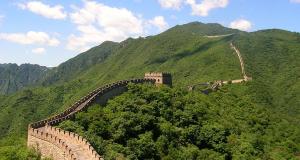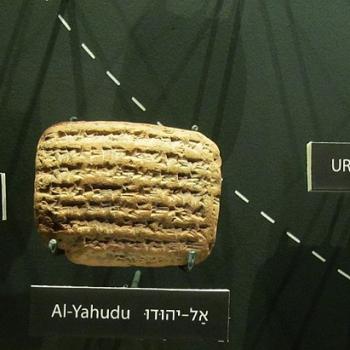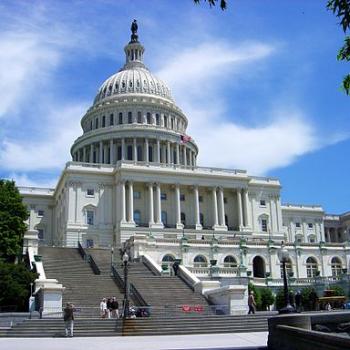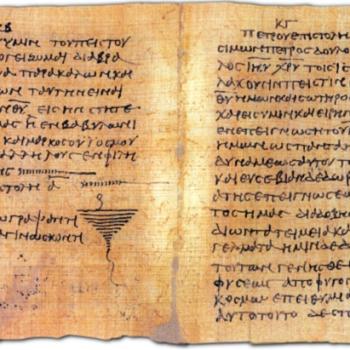When I first arrived at seminary 38 years ago, I was full of curiosity as to where I could find the Chinese people in the Bible. Which of the names in the Genesis 10 Table of Nations was China by another name? A Chinese student was quick to advise me not to waste my time on the search.
Yes, I’m sure the Table of Nations was selective. And yes, the Bible’s declarations about “all” of humankind apply also to the Chinese. But could there still have been at least one specific reference to China in God’s word?

The strongest candidate for a Biblical reference to China is Isaiah 49:12, a description of Jews returning from captivity: “Behold, these shall come from far away, and behold, these from the north and from the west, and these from the land of Sinim.” While eminent scholars including Gesenius and Delitzsch seriously believed this to be a reference to China, others in the past two centuries have emended the text from synym to swnym, which would mean “Aswan” or “Syene” in far southern Egypt. The Dead Sea Scrolls (1QIsa) contain such a reading, although even there it may be an attempted correction rather than an original reading; it may be that the Dead Sea copyists preferred a familiar place name to a name they knew nothing of. The Latin version reads de terra australi, “from the land of the south” (not Australia, although it is amusing to consider!). The Greek version reads “from the land of the Persians,” which may be a directional stab in the dark, or a directional understatement; the land in question may be much further east than Persia.
Sinae is the Latin name for the Qin (Ch’in) state, founded approximately 778 BCE (here I confess to be academically deficient, and am forced to rely on Wikipedia – see https://en.wikipedia.org/wiki/Qin_(state)), although the Romans and Greeks usually referred to China as “Silk-Land” (Serica). So Sinim as a potential reference to the land which became China, by the name by which it became known, is plausible for the writer of this scripture, whether it was written by Isaiah ben-Amoz (690 BCE?) or by a later writer (540 BCE?). However, if this is a reference to the early Qin state, it is the only one we can find in the ancient Near East; any other such references must be under a name hitherto never associated with the Far East.
The only other possible reference to the Chinese is in Revelation 16:12, the “kings from the East” who come in the final days before the return of Christ from beyond the Euphrates, for whom we are given their number: 200 million of them (Revelation 9:16). It is a number probably larger than the entire population of the planet in 95 AD, but it has been argued that today’s China could potentially field an army that large. The claim that this is China cannot be proved, but cannot easily be dismissed.
God’s word may speak more specifically about China than it does about America. The closest such verse I can find is Ezekiel 30:5, which mentions the “Land of the Covenant,” which sounds like the modern Israeli name in Hebrew for the “United States” (Artzoth-ha-Berith, “The Lands of the Covenant”).
But while China may have been barely if at all visible on the radar of the Biblical audience, China was always important to God. It is fascinating to trace the evidence of the Gospel’s arrival in China (http://www.soc-wus.org/2012News/11132012122317.htm). Leading the way was a Nestorian bishop named Alopen in 635 AD (http://www.atour.com/religion/docs/20011114a.html), who composed the first Christian writing in Chinese, The Sutra of Jesus the Messiah. As defective as the Nestorian understanding of Christ may have been (a schizophrenic juxtaposition of divine and human natures), it was apparently good enough for God to use anyway. Syrian Orthodox missionaries came soon thereafter. The Xian-Fu stone (781 AD), inscribed in both Chinese and Syriac, contains the names of over 70 Christian leaders in China.
Who would have dreamed how God’s church in China would have exploded with growth since 1949? It has been jokingly observed that Mao Zedong was one of the greatest evangelists who ever lived, because he bulldozed obstacles to the Gospel that might have taken decades to overcome. He built roads, imposed a single language, made the nation literate, swept away the old gods and goddesses, and created a spiritual vacuum that only Christ could fill.
Praise God for today’s huge army of our Christian sisters and brothers in Christ, an army so big that it would have staggered the minds of anyone from Biblical times! Indeed, the only one who ever saw that huge crowd of Chinese believers was John (Revelation 7:9), and even he was unable to name them by name.












